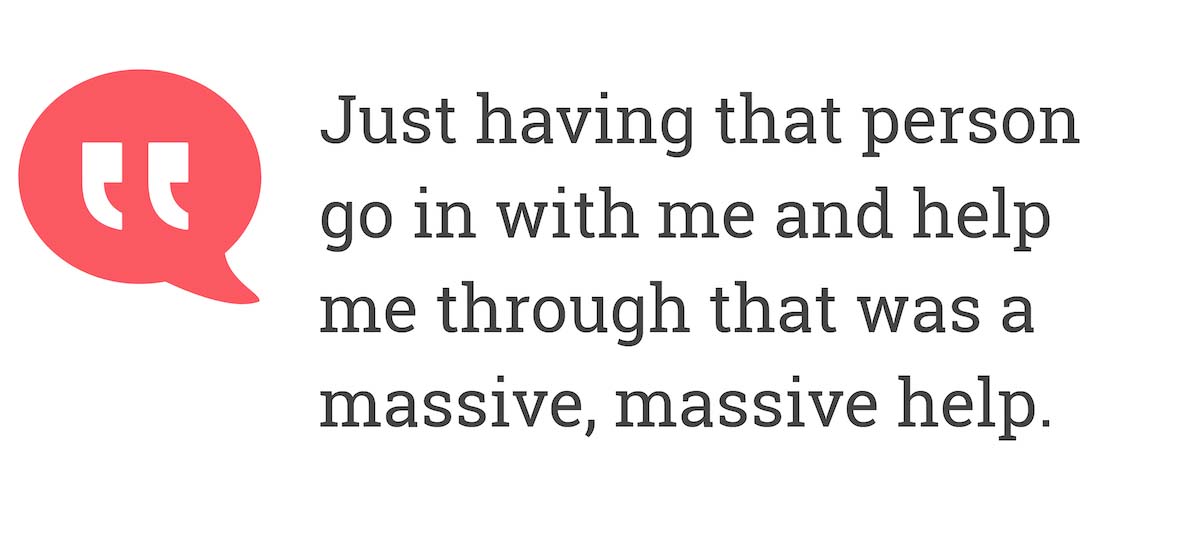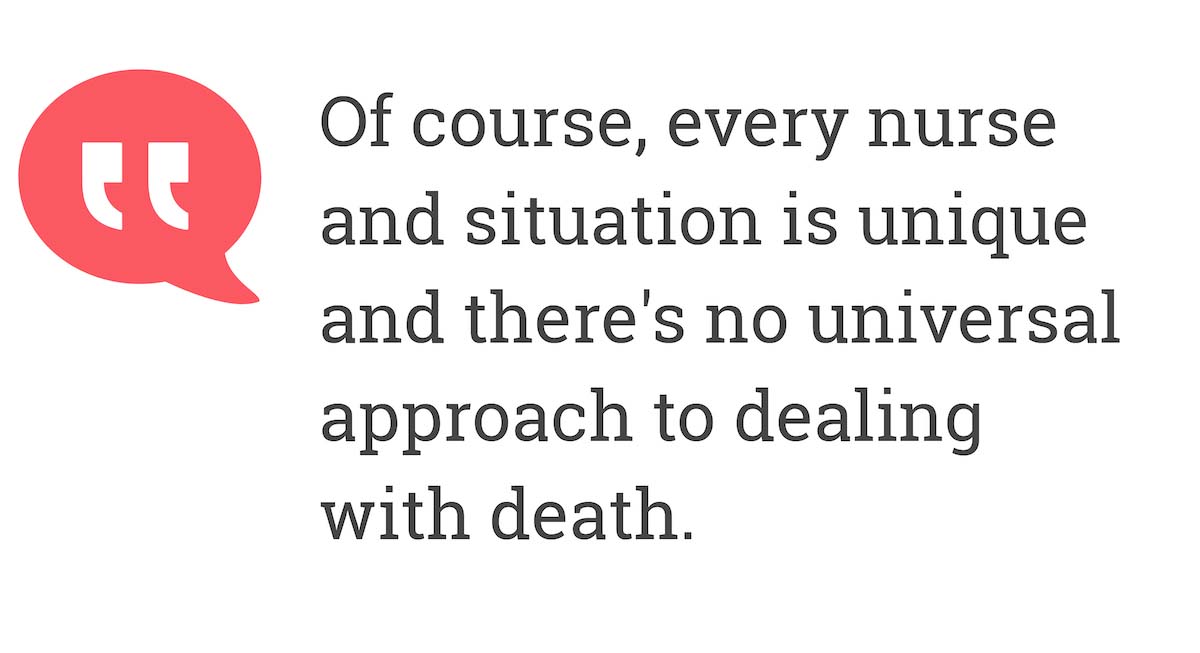- 17 December 2021
- 9 min read
5 Nurses Advice For Coping With The Loss Of A Patient
SubscribeWe asked some of our contributors to give their advice for coping with the loss of a patient, as it’s important to reach out for help, if you need it.
Laura Pueyo - Haematology Nurse
Claire Carmichael - GP Nurse
Today we're discussing a really important topic which is quite close to my heart and it's all about coping with the loss of your patient. When I worked at my very first care home for the elderly, it was a fantastic home. I fell in love with every single one of the residents and there was this one person in particular, I would care for her every single day over the next few months and however, unfortunately, she sort of deteriorated quite quickly and she'd become quite unwell.
So it was more of an expected death in a way. So we were all prepared for it and then when she did die, nobody had told me that they hadn't removed the body from the room or anything like that and I went on shift on the day and I just assumed that it had all been dealt with and it was okay and someone said, "Oh, can you just go up to the room, give the room clean and things like that." And I said, "Yeah, yeah, no problem." And then to my shock, when I opened the door and she was still in the bed, I ran, I thought I was seeing a ghost, it really did scare me.
So I ran and I spoke to the team and I was like, "Is she still there?" I didn't know what was happening. No one had warned me. No one had told me and I think that was the shock factor of that part. However, someone said to me, "Okay, let's go in together and let's deal with this together." And you know what? Just having that person go in with me and help me through that was a massive, massive help.

As a student nurse, I had a couple of patients who came into hospital healthy. They weren't expecting to die, there was no warning and they just suddenly went and that's the deaths that I can't deal with, I can't deal with that because I'm an over-thinker and I think about the family, I think about, I've just seen that patient like the morning before and they're okay, what's happened?
That for me is the hardest to deal with and there's been a number of times where I've had that happen on shift and I've composed myself and I've been there for the family and I've done okay and as soon as I've walked through those doors to go home, I just broke down and I just cried all the way home just to let it out because it was just so sad but what I did and something that might help you maybe is I wrote a reflection on it and I read through the reflection and I sat with my mentor at the time.
It's not just about looking after them and looking after the families, actually, you have to be okay as well because it is tough. It can have a really bad negative effect on your mental health. So it's really important that you get the support and just make sure you're okay. So my main pickups from this video is, get support, make sure you have a debrief and always remember it's okay not to be okay. Don't suffer in silence and talk about your feelings.
Nicola Wiafe - NICU Nurse
Every death is different and as you progress throughout your nursing career, although it might be something that you are able to cope with and manage better, never just see it as part and parcel of nursing. Remember that you should always show compassion. You should always show empathy and never lose that desire to get it right.
If you are a student or you're a newly qualified nurse or even if you are a nurse who has been way within their career and you haven't been exposed to death within professional settings, I would advise that if that opportunity arises and you feel comfortable to do so, I would put yourself forward to be a part of this sort of difficult situation. The last thing that you would want is to have to deal with this sort of situation and be completely unprepared and sometimes that does happen.
So if an opportunity arises where, you know, something like death is preempted and it's something that people know is going to happen, see if you can be a part of some sort of the process, whether it's the before, the afterwards because it will really just help you to hone in on your skills and it will really just take a lot of pressure off when situations like that happen out of the blue as well. Of course, nothing can prepare you for dealing with a dying patient but there are some steps that you can take to prepare you in advance.
Just know that you did your best and that can be really, really difficult to process and in a situation like this where the outcomes aren't favourable, it's hard to feel like you did your best but it's really important to give yourself some grace and to know that you did your best with whatever circumstance you were in and to just remember that every single situation that you are in is only gonna make you a better nurse and that you're gonna be able to learn something and apply that when the next situation occurs.








About this contributor
Editor
I have a background in visual media and film content. I'm now developing my publishing skills, and am enjoying talking to people in health and social care who want to contribute and feel passionate about what they do. I’m constantly struck by the quality and feeling in the articles we receive, and I aim to ensure the readers are too.
More by this contributorWant to get involved in the discussion?
Log In Subscribe to comment